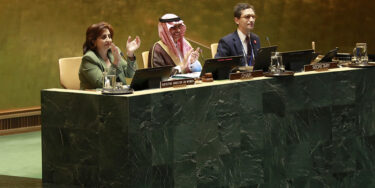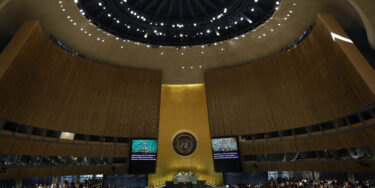Last week, Global Fund for Women brought together 85 activists from sister organizations and women’s funds in Europe & Central Asia for a meeting in Batumi, Georgia.
“The Europe and Central Asia Activist Convening brought together activists and women’s funds from very diverse backgrounds,” explains Mariam Gagoshashvili, Global Fund for Women’s Program Officer for Europe and Central Asia. “Yet it was very important to realize that the external and internal challenges these movements are facing are common ones and that we need to unite to counter them.”
One of the key challenges discussed at the meeting is the growing backlash against women and trans* human rights defenders and social change activists in the region. In countries including Azerbaijan, Uzbekistan, Belarus, Kazakhstan, and Tajikistan, just to name a few, organizations working on human rights—especially around gender, sexual orientation, or reproductive rights—are being increasingly targeted and threatened.
For many of the women in Batumi, the very act of traveling to the convening posed severe security threats. Some shared stories of the harassment and interrogation they would face when they traveled back to their home countries—still emphasizing that the opportunity to be there and exchange strategies and stories with other activists throughout the region was worth it.
“When I return to my home, I will be invited to the police office, I will be fingerprinted, and I will be sent to the HIV office,” shared one activist. “I will be interrogated to find out where I went and why I went and how I went.”
Shrinking space for activism
In Europe and Central Asia, in recent years, grass-roots women-led organizations have worked hard to organize movements, make their voices heard in public conversations around gender equality, and to drive positive shifts in culture.
But, as the activists convened in Batumi highlighted, for every positive shift, there have been strong resistant reactions.




